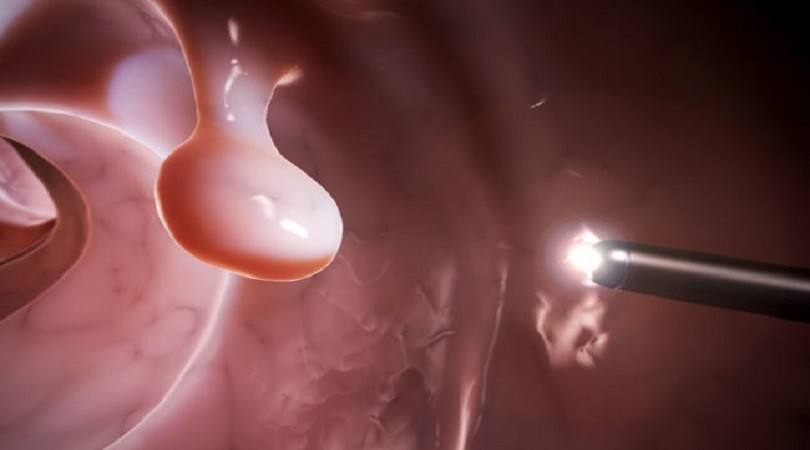Last Updated on January 6, 2025
Yes, you can eat radish while pregnant. Radishes provide essential nutrients that can be beneficial to both you and your baby during pregnancy.
They are a rich source of vitamin c, which helps boost your immune system and aids in the development of your baby’s bones and teeth. During pregnancy, it is crucial to maintain a nutritious diet to support the health and development of both the mother and the growing baby.
While certain food restrictions are necessary, radishes can be safely consumed. Radishes are known for their crisp texture and delicious flavor, but they also offer numerous health benefits. Packed with essential nutrients, including vitamin c, radishes can boost the immune system and aid in the development of the baby’s bones and teeth. This article explores the safety of consuming radishes during pregnancy and highlights the potential advantages they can provide. So, if you are pregnant and wondering whether to include radishes in your diet, read on to discover the benefits and considerations associated with this vegetable.

Credit: www.youtube.com
1. Nutritional Benefits Of Radish During Pregnancy
High In Vitamin C For Immune Support
Radish is a powerhouse of nutrients that can provide numerous benefits during pregnancy. One of its key nutrients is vitamin c, which plays a crucial role in supporting your immune system. Here’s why you should include radish in your diet:
- Vitamin c boosts the production of white blood cells, strengthening your immune system’s ability to fight off infections and diseases.
- It acts as a powerful antioxidant, neutralizing harmful free radicals in your body.
- By consuming radish, you can minimize the risk of developing common illnesses like colds and flu during pregnancy.
Rich In Fiber For Healthy Digestion
Fiber is an essential component of a healthy diet, especially during pregnancy when digestion can become sluggish. Radish offers a significant amount of dietary fiber, promoting smooth digestion and preventing constipation. Here’s why fiber-rich radish is beneficial for pregnant women:
- Fiber adds bulk to your stool, preventing constipation and ensuring regular bowel movements.
- It aids in proper digestion and prevents gastrointestinal discomfort.
- Radish can help alleviate common digestive issues like bloating, gas, and indigestion, which tend to occur during pregnancy.
Contains Potassium For Regulating Blood Pressure
Maintaining optimal blood pressure levels is crucial for the well-being of both you and your baby during pregnancy. Radish contains potassium, a mineral that helps regulate blood pressure. Here’s why you should consider incorporating radishes into your pregnancy diet:
- Potassium helps relax blood vessel walls, promoting healthy blood flow and reducing the strain on your cardiovascular system.
- By consuming radish, you can lower the risk of developing hypertension, gestational hypertension, or preeclampsia.
- Adequate potassium intake can contribute to normal fetal growth and development.
Remember, moderation is key when incorporating radish into your pregnancy diet. Consult with your healthcare provider or a registered dietitian to determine the ideal quantity to consume based on your individual needs. Enjoy this nutritious vegetable as part of a balanced prenatal diet and relish its fantastic health benefits.
2. Risks And Precautions Of Consuming Radish During Pregnancy
Risks And Precautions Of Consuming Radish During Pregnancy
When it comes to maintaining a healthy diet during pregnancy, it’s important to know which foods are safe to eat and which ones should be avoided. Radish, a crunchy and flavorful vegetable, is a popular ingredient in many dishes. But can you safely include radish in your pregnancy diet?
Let’s take a closer look at the potential risks and precautions of consuming radish during pregnancy.
Potential Risk Of Bacterial Contamination
- Radish, like any other raw vegetable, may carry bacteria such as e. coli or salmonella. These pathogens can pose a risk of foodborne illnesses, which can be particularly harmful during pregnancy.
- Properly washing and preparing radish can help reduce the risk of bacterial contamination. Make sure to thoroughly rinse radishes under running water and scrub them gently with a vegetable brush.
May Cause Gastrointestinal Discomfort In Some Individuals
- Radish is known for its spicy and pungent flavor. While it may not cause any issues for most pregnant women, some individuals may experience gastrointestinal discomfort after consuming radish.
- If you find that radish causes you bloating, gas, or indigestion, it might be best to limit your intake or avoid it altogether during pregnancy.
Allergic Reactions To Radish Are Rare But Possible
- Allergic reactions to radish are relatively rare, but they can occur in some individuals. Symptoms may include hives, itching, swelling, or even difficulty breathing in severe cases.
- If you have a known allergy to radish or other cruciferous vegetables, it’s advisable to consult with your healthcare provider before including radish in your pregnancy diet.
Remember, every pregnancy is unique, and it’s essential to consult with your healthcare provider or a registered dietitian before making any significant changes to your diet. They can provide personalized advice based on your specific needs and medical history.
3. Safe Consumption Tips And Delicious Radish Recipes For Pregnant Women
Eating radishes during pregnancy can provide a host of nutrients for both you and your growing baby. However, it’s essential to follow some safety tips to ensure you enjoy radishes without any concerns. Here are some guidelines to keep in mind:
Thoroughly wash and peel radishes before eating:
- Radishes may have traces of dirt or pesticides on their skin, so it’s essential to wash them thoroughly before consumption.
- Gently scrub the radishes under running water to remove any dirt particles.
- Consider peeling the skin to ensure additional cleanliness and eliminate any pesticide residue.
- Peeling the radishes also helps reduce the chance of any digestive discomfort that may arise from eating radishes with the skin on.
Moderation is key – consume radish in reasonable amounts:
- While radishes are generally safe to eat during pregnancy, like any food, moderation is crucial.
- Eating radishes in reasonable amounts ensures a balanced and varied diet.
- Aim to have them as part of a diverse array of fruits and vegetables in your meals.
- Consuming excessive amounts of radishes may lead to digestive issues such as gas or stomach discomfort, so it’s best to enjoy them in moderation.
Incorporate radish into salads, stir-fries, or as a crunchy snack:
- Radishes offer a refreshing and crisp taste, making them a great addition to various dishes.
- Add sliced or grated radishes to your salads for an extra crunch and peppery flavor.
- Include radishes in stir-fries to enhance the dish with their vibrant color and unique taste.
- Enjoy radishes as a crunchy snack by pairing them with a delicious and healthy dip like hummus or tzatziki.
- Experiment with different recipes to find your favorite way of incorporating radishes into your meals.
Delicious radish recipes ideas:
- Radish and cucumber salad:
- Thinly slice radishes and cucumbers.
- Toss them together with a dressing made of lemon juice, olive oil, salt, and pepper.
- Top with fresh herbs like mint or parsley for added freshness.
- Roasted radishes:
- Preheat the oven to 400°f (200°c).
- Cut radishes into halves or quarters.
- Toss them with olive oil, salt, and pepper.
- Spread the radishes on a baking sheet in a single layer and roast for about 20-25 minutes or until they turn tender and slightly caramelized.
- Radish salsa:
- Finely chop radishes, tomatoes, red onion, and cilantro.
- Mix them in a bowl with lime juice, salt, and a touch of chili powder for some heat.
- Serve the radish salsa with tortilla chips or as a topping for grilled fish or chicken.
Remember, it’s always crucial to consult your healthcare provider and listen to your body’s needs during pregnancy. Enjoy radishes as part of a well-balanced diet, and savor the flavors and nutritional benefits they offer.
Frequently Asked Questions On Can I Eat Radish While Pregnant?
Can I Eat Radish While Pregnant?
Yes, it is safe to eat radish during pregnancy as it is rich in essential nutrients. However, moderate consumption is recommended.
Are Radishes Good For Pregnancy?
Radishes are a good source of vitamin c, fiber, and potassium, which are beneficial during pregnancy. Including them in your diet can support you and your baby’s health.
How Can Radishes Benefits A Pregnant Woman?
Radishes can help reduce constipation, provide a boost of antioxidants, and support the immune system, making them beneficial for pregnant women.
Any Precautions To Take While Eating Radish During Pregnancy?
While radishes are safe to eat during pregnancy, it’s important to wash and properly prepare them to remove any potential dirt or bacteria.
Conclusion
Radishes can be a nutritious addition to a pregnant woman’s diet. With their high vitamin c content, they can help boost the immune system and aid in the absorption of iron. The fiber in radishes can promote healthy digestion and prevent constipation, which is a common issue during pregnancy.
Additionally, the antioxidants found in radishes can help protect against oxidative stress and inflammation. However, it is important to consume radishes in moderation and ensure they are properly washed to reduce the risk of foodborne illnesses. As with any food during pregnancy, it is always best to consult with your healthcare provider to ensure it is safe for you and your baby.
Overall, enjoying radishes in a balanced diet can provide both taste and health benefits for expectant mothers.











